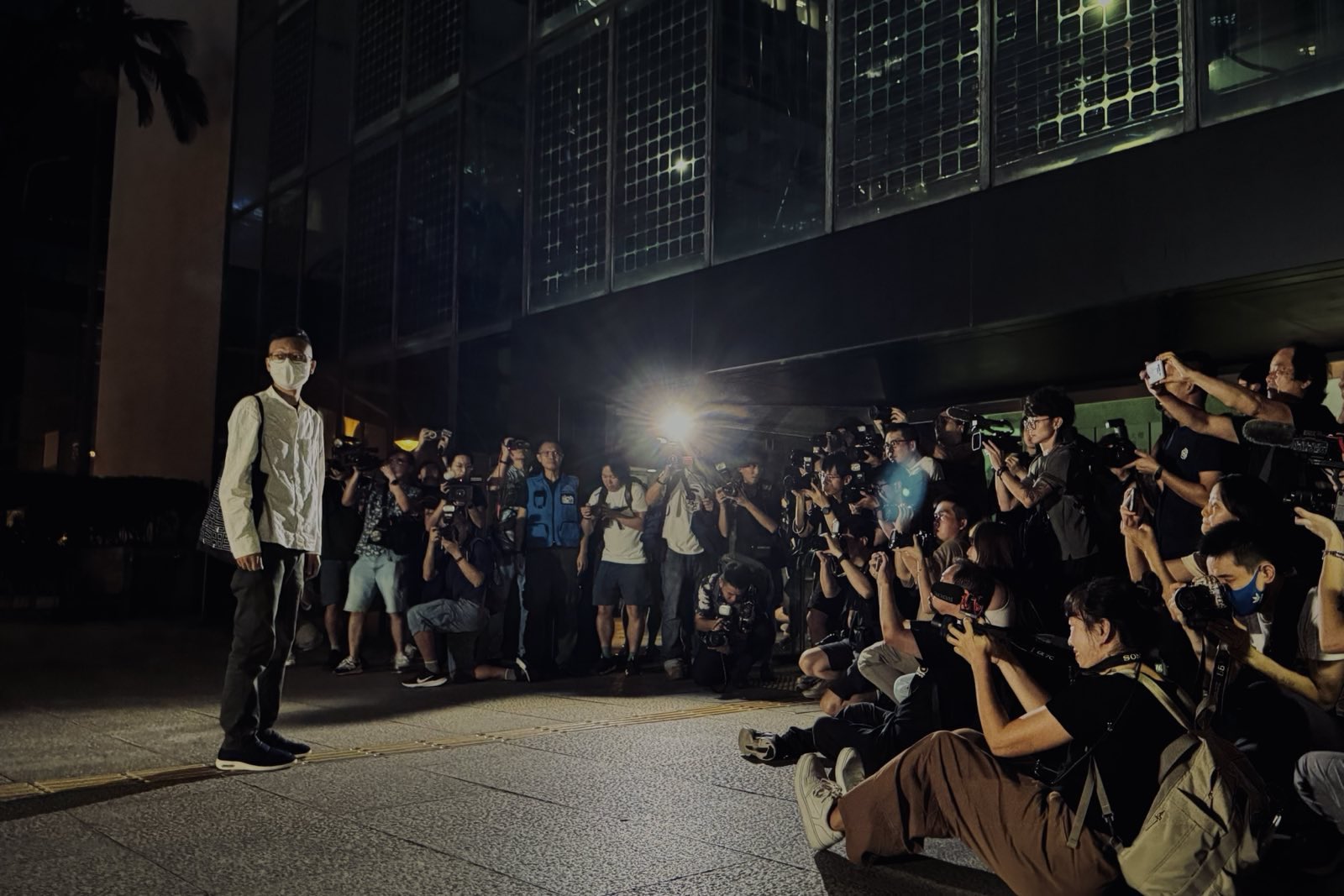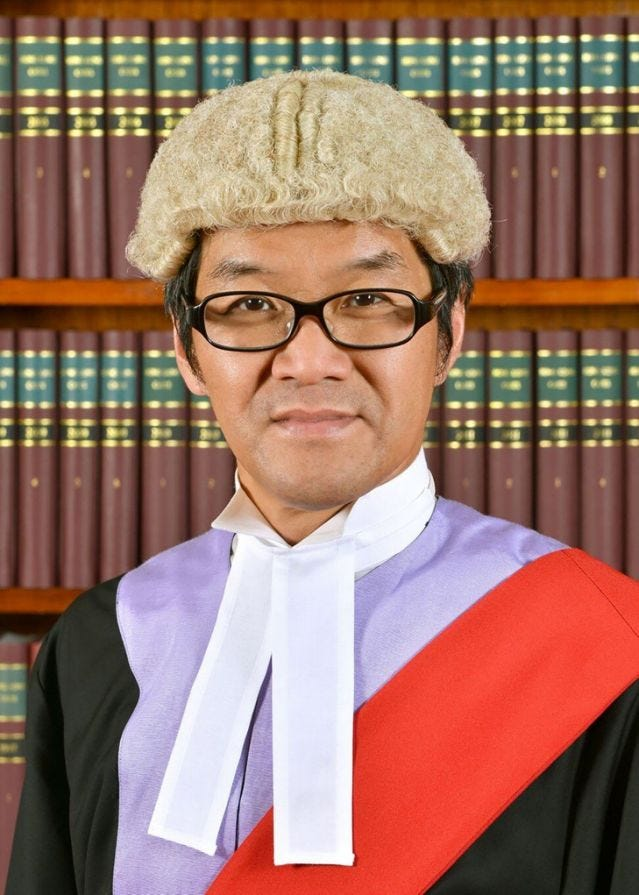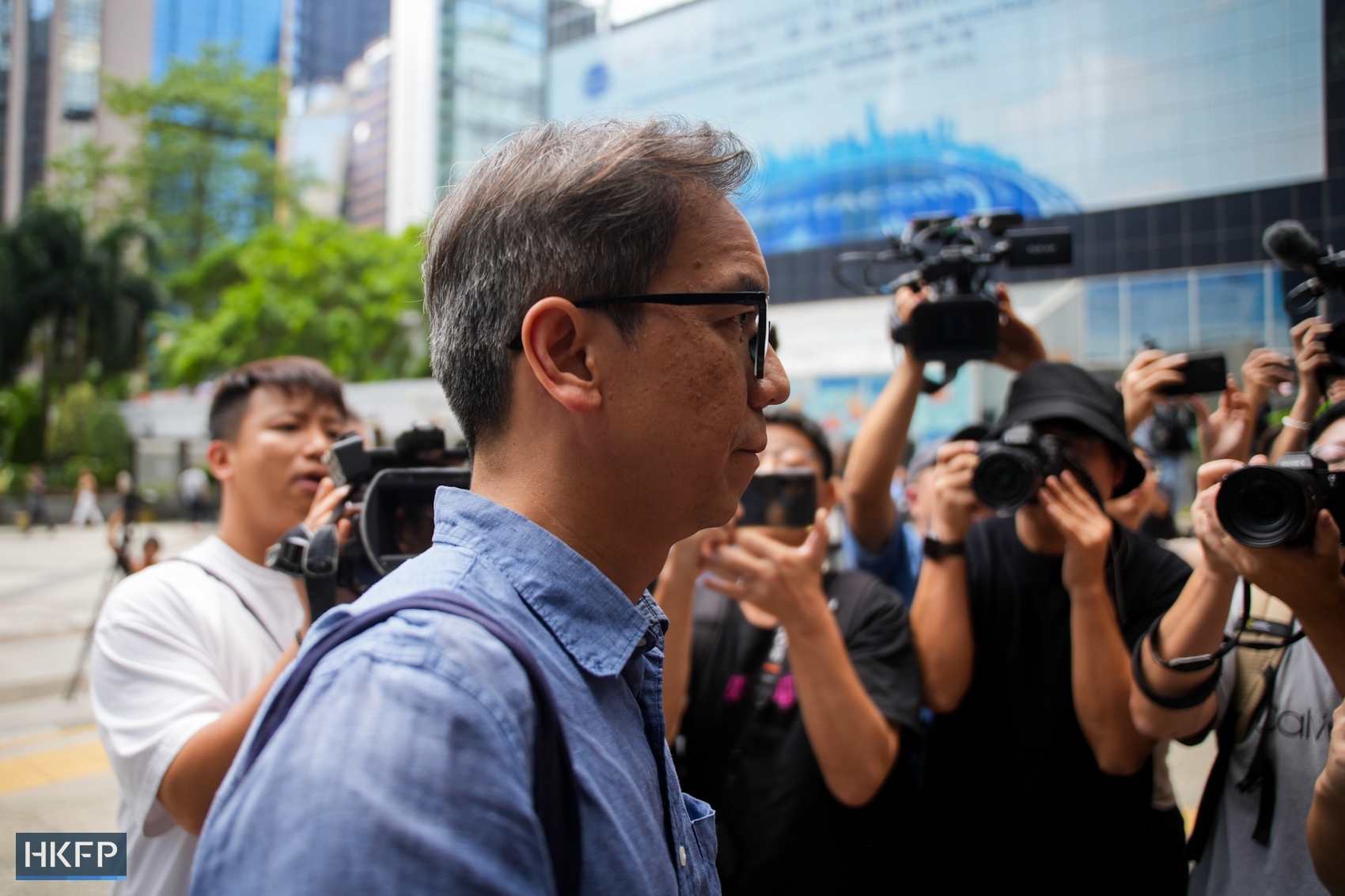In a significant legal development, a Hong Kong court sentenced two prominent journalists, Chung Pui-kuen and Patrick Lam, to jail for their roles in leading the now-defunct pro-democracy newspaper, Stand News.
Their sentencing on sedition charges marks a critical juncture in the ongoing struggle for press freedom in Hong Kong, reflecting broader tensions between the local populace and the Chinese government. This event holds profound implications not only for the future of journalism in Hong Kong but also diplomatic relations and the international community’s stance on human rights issues in China.
The sentencing has sparked outrage among human rights advocates and prompted condemnation from Western nations, which have long viewed press freedom as a cornerstone of democracy.
Background of the Case
The charges against Chung and Lam stem from articles published by Stand News, which highlighted the Chinese government’s crackdown on civil liberties in Hong Kong. The court found that 11 articles were seditious, with Judge Kwok Wai-kin asserting that Stand News had become a “danger to national security.” This case is particularly notable as it marks the first application of a colonial-era sedition law against journalists since Hong Kong’s handover from Britain to China in 1997.
The proceedings against Stand News began amid a broader climate of repression following the 2019 pro-democracy protests, where the Hong Kong government and Beijing’s central authorities intensified their efforts to quell dissent. The introduction of the National Security Law (NSL) in 2020 has further contributed to an environment of fear and self-censorship among journalists and media organizations.
The closure of Stand News in December 2021, following a police raid that resulted in multiple arrests, underscored the perilous landscape for independent media in Hong Kong. In this context, the sentencing of Chung and Lam serves not only as a legal ruling but also as a stark warning to other journalists and media outlets considering similar coverage of contentious issues.

The Decline of Press Freedom in Hong Kong
The erosion of press freedom in Hong Kong has been alarming, as evidenced by its precipitous drop in global press freedom rankings. According to Reporters Without Borders, the territory has fallen from 18th to 135th place over the past two decades. The introduction of the NSL has been pivotal in this decline, creating a chilling atmosphere that stifles independent journalism and allows the government to exert control over the narrative.
Human rights organizations have criticized the Hong Kong judiciary as a tool of the government, claiming it is being manipulated to silence dissent. As stated by Aleksandra Bielakowska, Advocacy Manager at Reporters Without Borders, the current regime in Hong Kong aims to produce a sanitized narrative, thereby limiting the media’s ability to challenge government actions or report on controversial issues.
International Reactions and Diplomatic Ramifications
The sentencing of Chung and Lam has ignited a wave of international condemnation, particularly from Western nations. The United States government has vocally criticized the prosecutions, asserting that such actions create a chilling effect on press freedom and diminish the prospects for democratic governance in Hong Kong. The U.S. State Department emphasized that the right to free expression is a fundamental human right, and any attempts to silence independent journalism will be met with scrutiny and disapproval.
In the United Kingdom, where historical ties to Hong Kong persist, the government has expressed serious concerns regarding the implications of these legal proceedings for democracy and human rights in the territory. The UK’s Foreign, Commonwealth & Development Office issued statements condemning the sentencing and reaffirming its commitment to the people of Hong Kong in their pursuit of democratic freedoms.
The diplomatic impact of these reactions extends beyond mere rhetoric. The erosion of press freedom in Hong Kong is likely to affect negotiations and trade agreements between China and Western nations, as human rights considerations increasingly play a role in diplomatic engagements. Countries may choose to leverage their economic relationships with China to advocate for improved human rights practices, placing additional pressure on the Chinese government to conform to international standards.

Judicial Actions and Their Implications in Hong Kong
In the backdrop of Judge Kwok Wai-kin’s landmark decision to convict editors Patrick Lam and Chung Pui-kuen of sedition, several related events have unfolded, further illustrating the evolving landscape of judicial and media freedom in Hong Kong.
Judge Kwok’s ruling, which culminated in the sentencing of Lam to 11 months and Chung to 21 months in prison, underscores the Hong Kong judiciary’s increasing role in the enforcement of laws perceived as tools for political repression. This case is particularly significant as it utilizes a colonial-era sedition law, previously infrequently invoked, to target journalists whose work has been critical of the government’s actions regarding civil liberties.
Continued Crackdown on Media Outlets
In the wake of the convictions, a pattern of intensified scrutiny and pressure on independent media has emerged. Following the closure of Stand News in December 2021, several other pro-democracy news outlets have faced similar fates, with many journalists either resigning or operating under severe constraints. The Hong Kong Journalists Association reported an alarming decline in press freedom, with numerous journalists citing fear of prosecution as a reason for self-censorship.
The international community has reacted strongly to these judicial actions. Various governments and human rights organizations have condemned the sentencing, viewing it as part of a broader campaign to silence dissent and restrict freedom of expression. Statements from the United States and European nations highlight the importance of press freedom as a fundamental human right, calling for the immediate release of Lam and Chung, as well as other journalists facing persecution.
Legislative and Policy Developments
In addition to individual prosecutions, recent legislative measures have compounded the challenges faced by the media in Hong Kong. The introduction of the National Security Law in 2020 has equipped authorities with expanded powers to target those deemed a threat to national security, raising concerns about the law’s vague provisions and their application against dissenters, including journalists and activists.
Judge Kwok Wai-kin’s decision has not only highlighted the complexities within the Hong Kong judiciary but has also raised questions about its independence and the potential politicization of legal proceedings. Legal experts warn that such rulings may set a dangerous precedent, paving the way for further erosion of judicial autonomy and undermining public trust in the legal system.
The convictions of Patrick Lam and Chung Pui-Kuen signal a critical moment in Hong Kong’s ongoing struggle for press freedom and civil liberties. The implications of these judicial actions extend beyond the courtroom, affecting media operations, international relations, and the fundamental principles of justice and democracy in the region. As developments continue to unfold, the global community remains vigilant, advocating for the protection of independent journalism and the restoration of judicial integrity in Hong Kong.
The Broader Geopolitical Landscape
The implications of this case extend into the broader geopolitical context of East Asia. The Chinese government’s increasing assertiveness in enforcing its narrative and curtailing dissent is part of a larger strategy to project power and stability. This approach is particularly evident in its dealings with Taiwan and its responses to pro-democracy movements in other regions.
As tensions escalate in the Taiwan Strait, the West is likely to adopt a more unified stance against Chinese aggression, using cases like that of Chung and Lam as rallying points for solidarity with pro-democracy advocates. Additionally, the international community may view the situation in Hong Kong as a litmus test for China’s commitment to upholding international agreements, particularly the Sino-British Joint Declaration, which guaranteed certain freedoms for Hong Kong for 50 years post-handover.
The ramifications of these events could influence security arrangements in the region, as countries may seek to strengthen alliances in response to perceived threats from an increasingly authoritarian Beijing. The United States and its allies, particularly Japan and Australia, may find common ground in advocating for human rights and democratic governance, leading to greater cooperation in security and defense matters.

Human Rights and Legal Perspectives
From a human rights perspective, the case against Chung and Lam raises critical questions about the future of civil liberties in Hong Kong and the interpretation of laws governing free speech. The application of colonial-era sedition law in this context is particularly contentious, as it reflects a broader trend of using outdated legal frameworks to suppress dissent. This raises concerns about the rule of law and the independence of the judiciary in Hong Kong, as critics argue that the judicial system is increasingly politicized.
International human rights organizations have called for the immediate release of Chung and Lam, viewing their sentencing as emblematic of a broader pattern of repression against dissenting voices. The use of legal mechanisms to target journalists and activists has sparked debates about the implications for freedom of expression and the accountability of state actors.
Moreover, the erosion of press freedom in Hong Kong serves as a cautionary tale for other regions grappling with authoritarian governance. As governments around the world observe the Chinese government’s tactics, there is a risk of similar approaches being adopted in other contexts, threatening democratic institutions and civil liberties globally.
The Future of Journalism in Hong Kong
The fate of journalism in Hong Kong remains precarious, with the closure of Stand News representing a significant loss for independent reporting. The challenges facing journalists in the territory are compounded by the ongoing pressure to conform to government narratives, creating an environment where self-censorship is prevalent. As the landscape continues to evolve, many journalists will likely be forced to reassess their roles and the boundaries of acceptable discourse.
In light of these developments, the international community plays a crucial role in advocating for press freedom and supporting independent journalists in Hong Kong. Initiatives aimed at providing resources and training for journalists operating in hostile environments can help sustain the critical functions of a free press.
Moreover, global solidarity among journalists, media organizations, and human rights advocates is essential in countering the tide of repression. The establishment of networks that facilitate communication and collaboration can empower journalists facing similar challenges and amplify their voices in the face of adversity.
The sentencing of Chung Pui-kuen and Patrick Lam represents a significant turning point in the ongoing struggle for press freedom in Hong Kong. The implications of this case extend far beyond the legal realm, influencing diplomatic relations, human rights discourse, and the geopolitical landscape of East Asia.
As the international community grapples with the consequences of these events, it is crucial to reaffirm the importance of press freedom as a fundamental human right. The case serves as a reminder of the fragility of democratic institutions and the ongoing struggle against authoritarianism. By fostering global solidarity and advocating for the rights of journalists, the international community can work towards creating a more just and equitable world where freedom of expression is upheld and protected.



